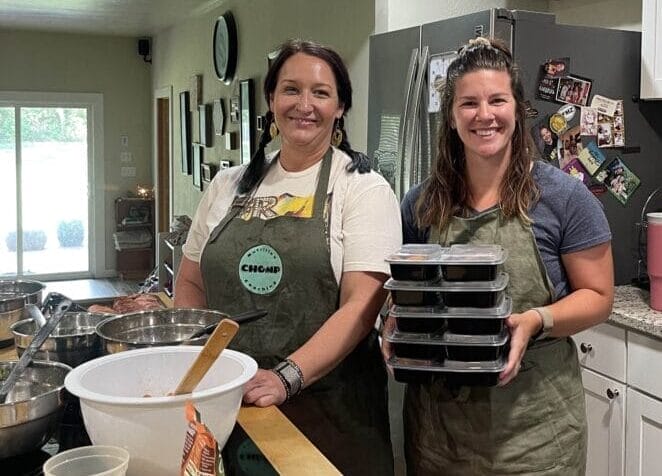In a world where diet culture and food shaming are prevalent, it is crucial to reevaluate our relationship with food and strive for a healthier mindset around it. Instead of categorizing foods as strictly “good” or “bad”, adopt a more nuanced approach which can lead to a more balanced and sustainable lifestyle. Shift from dichotomous thinking by considering foods on a continuum of “eat more,” “eat less,” and “eat some.” This approach allows for flexibility and moderation.
Here are some tips to help you reframe your relationship with food:
- Practice Eating Mindfully: Pay attention to your body’s hunger and fullness cues. Eat when you’re hungry and stop when you’re satisfied. By tuning into your body’s signals, you can develop a more intuitive relationship with food and avoid overeating or even restrictive behaviors. Don’t be surprised if this is easier said than done. After decades of dieting crazes, we can lose touch with our cues which have been long replaced with strict calorie rations and drowned by emotional eating highs and lows. Intuitive eating is a learned skill that takes time. Just like any skill, it must be practiced and developed through strategies. Although skill development is most effective when done with a coach, who can provide you a plan, provide objective feedback, and identify blind spots, there are things you can do on your own. You can use various assessments or evaluations on choices made, build awareness by eating slowly and to 80% full, and make brief daily observations through reflection.
- Focus on Nutrient Density: Instead of fixating on calorie counting or being extremely restrictive, prioritize nutrient-dense foods that nourish your body. Aim to include whole foods that are minimally processed in a wide variety. Think vegetables, lean proteins, fruits, whole grains, legumes, and healthy fats to support overall health and well-being. The goal with nutrition isn’t to get things to be “perfect.” Remember to imagine the food options on a spectrum and make choices that are just “a little bit better”. Aim for 80-90% of your diet to be minimally processed, whole foods. This way, you still likely have room for foods that are less nutritious.
- Challenge Food Myths and Beliefs: Not everything you read on the internet and receive from others is true. There are all sorts of answers on Facebook and Instagram. Question the societal norms and beliefs surrounding food and body image. Challenge diet culture messages that promote unrealistic ideals or restrictive eating patterns. Be aware of “always” or “never” statements in nutrition talk, and skeptical of “one-size-fits-all” approaches. Embrace your current body while working towards a healthier one and give yourself compassion through the process, but also allow yourself to enjoy occasional treats without guilt or judgment. Nutritional science is not necessarily simple, because each and every person is different. You must try different things and document the effects, but don’t forget the basics, such as staying hydrated, eating mostly nutrient-dense foods, getting quality sleep, and moving your body daily. If you don’t feel confident, consider a knowledgable coach to help you.
- Cultivate Positivity and Compassion: Surround yourself with foods that positively impact your body, mind, and soul. These foods make you feel good both physically and emotionally. Stock your kitchen with nutritious options that you enjoy. I always say, “If you don’t like kale, don’t eat kale.” But also allow yourself to indulge in occasional treats without guilt or judgment. Be kind to yourself, especially when it comes to food choices. Acknowledge that is it totally normal to have cravings, have a treat every now and then, or veer off the path occasionally. Instead of punishing yourself and your decisions, approach setbacks with self-compassion and see it as feedback for moving forward in making healthier choices.
Share your journey with trusted friends, family members, or a supportive community. Having a support system can provide encouragement, accountability, and a sense of connection when navigating challenging times. This is where having a coach is particularly useful for guidance in building skills that will last a lifetime! Reframing your relationship with food is definitely an ongoing journey that requires patience, self-reflection, and a willingness to challenge those ingrained beliefs and behaviors. By adopting a more balanced and compassionate approach to eating, you can cultivate a healthier mindset, nourish your body, and find joy in the diverse and delicious world of food. Remember, it isn’t about perfection but progress towards a more fulfilling and sustainable way of living.
Book your free “No-Sweat Intro” and/or your free nutrition consultation today!
Written by Kayla Allen.

